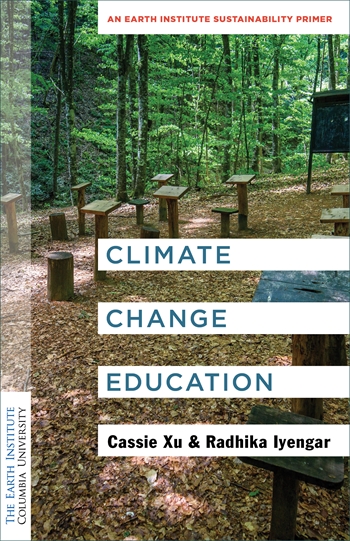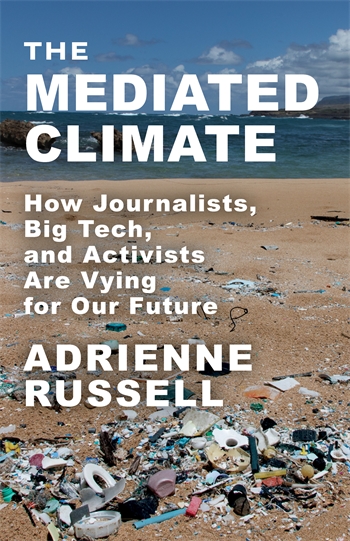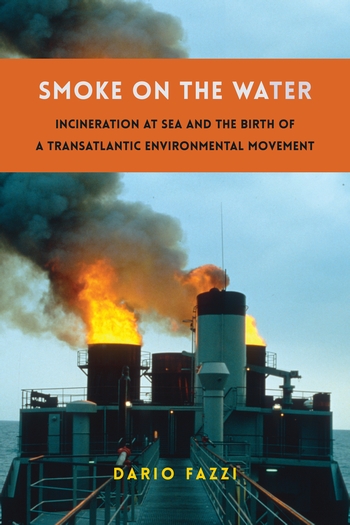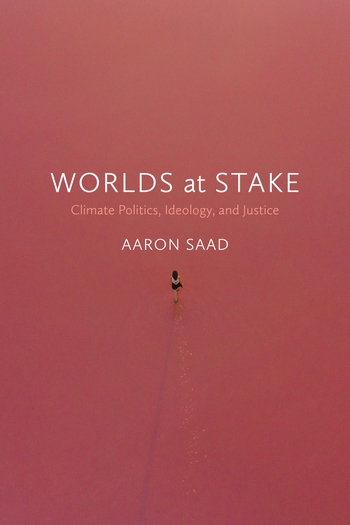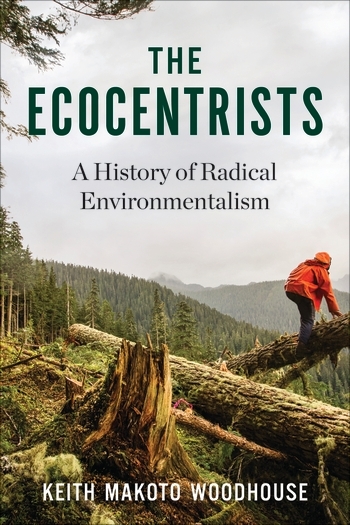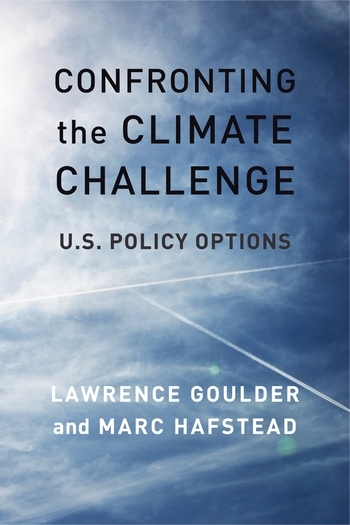Ten Must-Read Books for Climate Week 2023
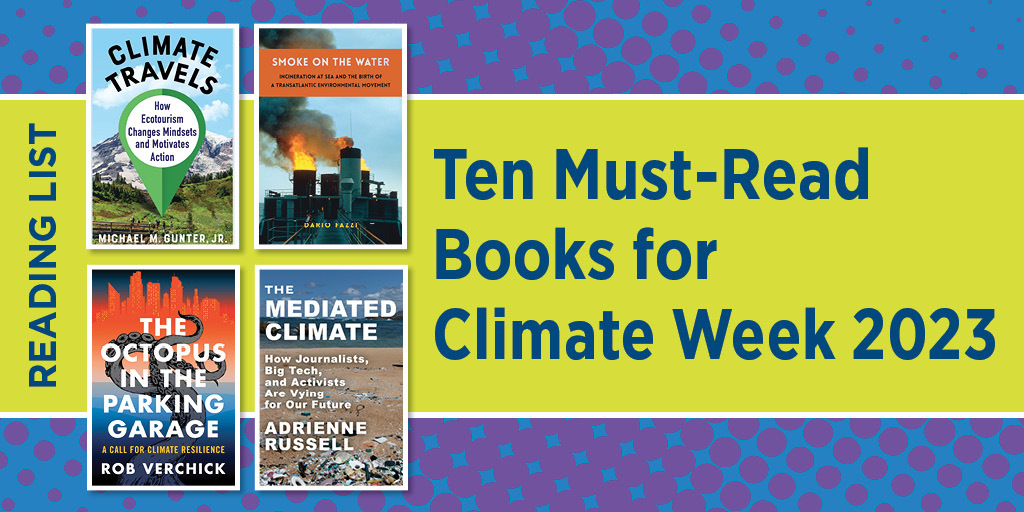
For more than a decade, Climate Week has brought together some of the foremost international leaders in a variety of different fields to discuss solutions to the climate crisis and celebrate progress. The books on this list do the same: they propose alternative approaches to tackling environmental issues, provide new frameworks for thinking about the possibility of a sustainable future, and laud those most deserving of praise for their hard work and dedication to mitigating the effects of climate change.
Climate Travels
How Ecotourism Changes Mindsets and Motivates Action
Michael M. Gunter Jr.
In Climate Travels, Michael M. Gunter Jr. takes readers around the United States to bear witness to the many faces of the climate crisis. Emphasizing how travel can help bring the reality of climate change home, these vignettes explore the consequences for people and communities from sea level rise in Virginia to imperiled ecosystems in national parks and more. Through it all, Gunter finds inspiring initiatives to mitigate and adapt to these threats, offering readers a message of hope about how to take action on the local level. Check out these tips on how to become advocates for climate change mitigation.
The Octopus in the Parking Garage
A Call for Climate Resilience
Rob Verchick
Engaging and accessible for nonexpert concerned citizens, The Octopus in the Parking Garage empowers readers to face the climate crisis and shows what we can do to adapt and thrive. Taking the reader on a journey into the field—paddling through Louisiana’s bayous, hiking in one of the last refuges of Joshua trees in the Mojave Desert, and diving off Key Largo with citizen scientists working to restore coral reefs—Rob Verchick shows what resilience looks like on the ground, from early humans on the savannas to today’s shop owners and city planners. Read this interview in which Rob Verchick stresses the importance of reliance-based efforts.
Climate Change Education
An Earth Institute Sustainability Primer
Cassie Xu and Radhika Iyengar
Understanding climate change and its social and physical impact is crucial to being a responsible citizen. Thus, Cassie Xu and Radhika Iyengar believe that climate literacy should be taught at every level within and without formal educational institutions. Climate Change Education outlines pedagogical frameworks for placing climate change at the forefront of education in schools—but also in communities and families. Highlighting systemic barriers and ensuring the presence of marginalized voices, Xu and Iyengar provide a plan for interdisciplinary environmental education for future generations.
The Mediated Climate
Adrienne Russell
The Mediated Climate explores the places where the climate and information crises meet, examining how journalism, activism, corporations, and Big Tech compete to influence the public. Adrienne Russell argues that the inadequate response to climate change is intertwined with the profound challenges facing the communications environment. She demonstrates that the information crisis is driven not only by technological changes but also by concentrated power that predates the rise of digital media companies.
How to Save the City
A Guide for Emergency Action
Paul Chatterton
Published by Agenda Publishing and distributed by Columbia University Press
With racial, economic, housing, and climate crises all intersecting, there is no doubt about it: the city has to change. How to Save the City offers practical solutions for creating sustainable cities, encouraging the reader to take action to save their own city from impending crisis. Paul Chatterton’s approach to sustainable city planning is engaging, inspiring, and empowering, emphasizing the need for action to mitigate the ecological effects of city living.
Greening America’s Smaller Legacy Cities
Joseph Schilling, Catherine Tumber, and Gabi Velasco
Published by Lincoln Institute of Land Policy and distributed by Columbia University Press
Greening America’s Smaller Legacy Cities explores how initiatives for climate resilience, environmental justice and equity, and green economic development can be implemented by local governments in small and midsized older industrial cities. This book outlines a comprehensive plan to regenerate these legacy cities while maintaining a sustainable and equitable ethos. This policy framework, applicable on various levels, serves as an inspiration for a low-carbon, economically and racially just future.
Smoke on the Water
Incineration at Sea and the Birth of a Transatlantic Environmental Movement
Dario Fazzi
Smoke on the Water tells the story of a transatlantic movement to end the U.S.-government-approved practice of ocean incineration to dispose of hazardous chemical waste—a practice that posed huge ecological and health risks. Dario Fazzi investigates this movement, arguing that its success stemmed from a combination of local advocacy and international mobilization. Fazzi emphasizes the work of marginalized groups, who face the greatest burden from the climate crisis, in mobilizing against the institutions upholding this practice, ultimately leading to its being banned. While grassroots work toward climate justice can feel futile at times, this book serves as a strong reminder of the successes of marginalized communities against massive systems with vast resources.
Pyromania
Fire and Geopolitics in a Climate-Disrupted World
Simon Dalby
Published by Agenda Publishing and distributed by Columbia University Press
Fire has entirely shaped the way that we as humans interact with the Earth. But as our planet is heating up, Simon Dalby argues that we must turn away from burning things in order to continue living together safely. Pyromania explores the possibility of rejecting combustion as a necessary part of human survival, offering suggestions of what a life without combustion could be like. In a changing climate full of unknowns, this book presents an opportunity to think outside of the box of what we think is necessary—and even what we think we are capable of.
Worlds at Stake
Climate Politics, Ideology, and Justice
Aaron Saad
Published by Fernwood Publishing and distributed by Columbia University Press
With the climate crisis intensifying as time goes on, something needs to change. But what must change, and by whom? Aaron Saad explores these questions in Worlds at Stake, investigating both system-preserving and system-changing frameworks to present competing arguments about our next steps toward a safe and equitable planet. Saad demonstrates the ways in which different ideologies beget different views on climate change and what must be done, allowing the reader to view various perspectives on actionable steps toward a livable global future.
From the Ground Up
How Land Trusts and Conservancies Are Providing Solutions to Climate Change
James N. Levitt and Chandri Navalkha
Published by Lincoln Institute of Land Policy and distributed by Columbia University Press
From the Ground Up is a report on the impact of land trusts and conservancies on addressing climate change. James Levitt, a global expert and educator in land conservation, and Chandri Navalkha, an international leader in sustainable management of land and water resources, use cases of successful initiatives in order to develop a framework for boosting the potential of civic organizations to implement natural climate solutions.
Categories:Earth DayEnvironmental StudiesReading List
Tags:Aaron SaadAdrienne Russelland Gabi VelascoCassie Xu and Radhika IyengarCatherine TumberChandri Navalkhaclimate actionClimate ChangeClimate Change EducationClimate TravelsClimate WeekClimate Week 2023Climate Week NYCDario FazziFrom the Ground UpGreening America’s Smaller Legacy CitiesHow to Save the CityJames N. LevittJoseph SchillingMichael M. Gunter Jr.Paul ChattertonPyromaniaRob VerchickSimon DalbySmoke on the WaterThe Mediated ClimateThe Octopus in the Parking GarageWorlds at Stake



